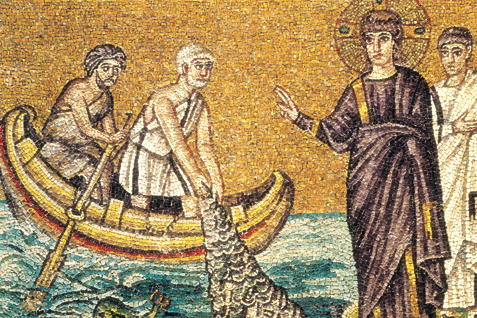CHRYSOSTOM:
This may apply in particular to those who commit themselves in detail to legal rules yet take little thought for the actual embodiment of their better intentions. Elsewhere Paul confronts them directly when he says, “Consider this. You bear the name Jew, rely on the law, boast in God and know the will of God,” but in all this you derive no benefit as long as the actual fruits of good living are not present.
CYRIL OF ALEXANDRIA:
Spiritually understood, the one who rightly hears the word is contrasted with the builder who builds his house on sand. In time of temptation the house falls down. The onslaught of evil wind covers it with silt, and troubled waters flood into the soul. From this turbid flood stream of iniquity the house is shaken to its foundations. This should rouse us to become aware of the danger that comes in final judgment. Those who hear the Lord’s words are like a wise man building on rock. Those who do not follow the Lord’s words are likened to a foolish man building on sand. One who practices virtue is made thoroughly able “through Christ who strengthens him.” We receive everything from God who puts things right. From him comes wisdom and insight and union with all that is good. The bad person cannot claim God as cause of his own wickedness and stupidity. He makes himself like the fool when he withdraws from that which proceeds according to nature. He then turns toward what is unnatural.


